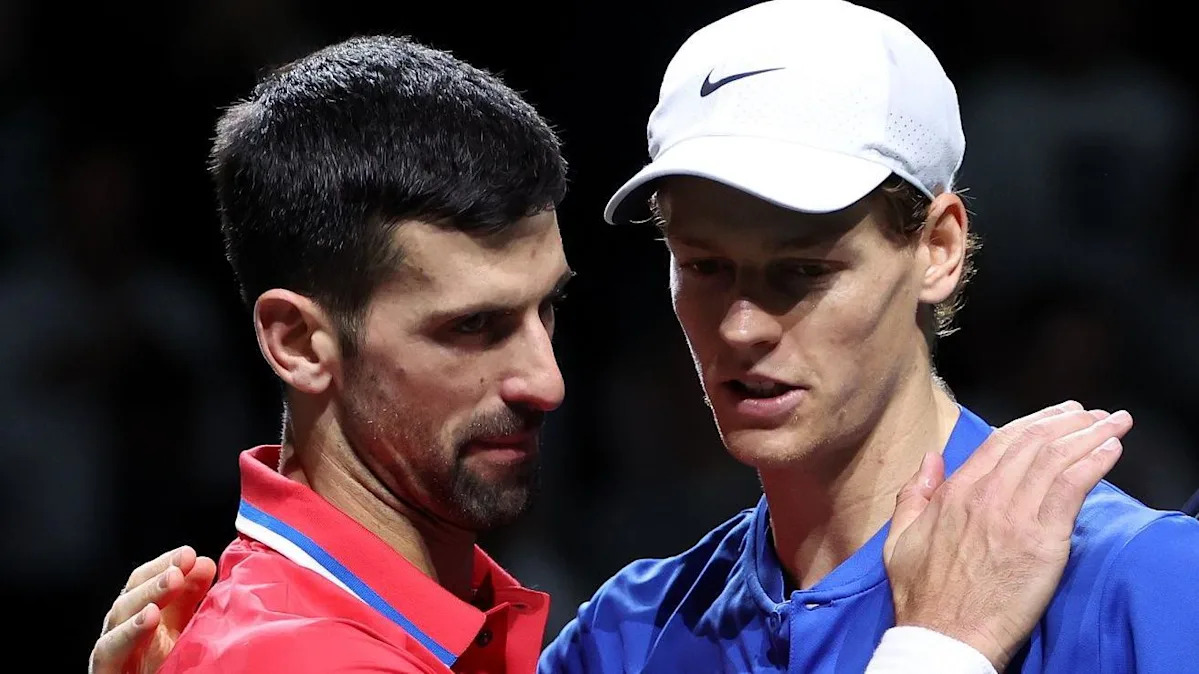The world of tennis is buzzing as the French Open 2025 approaches its pivotal men’s singles semi-finals, scheduled for Friday, June 6, at 13:30 BST at the iconic Roland Garros. Coverage is readily available through live radio commentaries on 5 Live Sport and BBC Sounds, as well as live text updates on the BBC Sport website and app.
As we delve into the narrative of this tournament, the spotlight is undoubtedly on Novak Djokovic. At 38 years of age, Djokovic’s presence in the semi-finals reinforces the idea that while the era of the ‘Big Three’ may be shifting, their impact continues to resonate. In contrast to the new generation of players, who are eager to carve out their own legacies, Djokovic stands tall as a final hurdle for these rising stars.
For context, the players born in the 1990s collectively managed just two Grand Slam titles during the prolonged reign of Federer, Nadal, and Djokovic. However, the tide is changing with Jannik Sinner and Carlos Alcaraz, both born after 2000 and currently responsible for seven major titles between them. These young talents are overshadowing the previous generation, driving home a point that the future of tennis is bright and brimming with potential.
Despite being 15 years older than his upcoming opponent Sinner, who he will face in the semi-finals, Djokovic is determined to add another achievement to his already storied career. Sinner, the Italian prodigy, is riding a wave of confidence, having won their last three encounters. This semi-final will be pivotal not just for Djokovic, who aims for a record-breaking 25th major singles title, but also for Sinner, who has ambitions to write his own history as the first Italian man to win the French Open since 1976.
As the youngest player in the semi-finals, Sinner brings an impressive form to the court. Currently on a 19-match winning streak in Grand Slam tournaments, his rise has been nothing short of remarkable, especially considering he had to serve a three-month doping suspension earlier this year. Sinner’s relentless precision and consistency make him a formidable opponent, and he will need to channel this energy against Djokovic, known for his unparalleled defensive skills.
Djokovic’s journey to the semi-finals has not been without its hurdles. Earlier in the tournament, he faced a surprising slump, marked by defeats that placed him as the sixth seed heading into Roland Garros. However, emerging victorious in his quarter-final match against Alexander Zverev, Djokovic proved that age is merely a number. He showcased an impressive rally, illustrating that he still possesses the agility and strategic mind necessary to compete at the highest levels.
Meanwhile, in the second semi-final, defending champion Carlos Alcaraz aims to continue his dominance over Lorenzo Musetti. With five consecutive victories against Musetti, including two on clay this season, Alcaraz has emerged as a powerhouse on the court. His recent performance, where he lost only five games against Tommy Paul, illustrates not only his skill but also his mental fortitude.
For Alcaraz, the semi-finals present a unique challenge as he looks to maintain his winning streak against Musetti. The Italian has made remarkable strides in his game, particularly in improving his serve. After reflecting on his training, Musetti expressed his confidence, stating that his newly refined serve has become a significant weapon for him.
As Alcaraz and Musetti face off, the anticipation builds. Will Alcaraz cement his status as a dominant force in tennis, or can Musetti surprise everyone with an upset win?
Additionally, the contrast between the burgeoning talents of Alcaraz and Sinner and the stalwart presence of Djokovic prompts a broader conversation about the future direction of men’s tennis. Generation Z fans are increasingly vocal about their hopes for a new narrative in the sport, where young players can shine without being overshadowed by the historical might of Djokovic, Federer, and Nadal.
This is more than just a tennis tournament; it is a cultural moment that reflects a larger generational shift. With every serve and rally, the new generation of players is pushing back against the longstanding dominance of the ‘Big Three.’ For those in Generation Z, this isn’t merely about statistics, records, or titles. It’s about redefining the narrative around tennis and asserting that the future is theirs to dictate.
As the semi-finals approach, one thing is clear: this clash of generations will set the stage for an electrifying showdown in the heart of Paris. Each match will not only determine the immediate future of these players but also shape the ongoing dialogue about legacy and evolution in the sport. Whether it is Djokovic, Sinner, Alcaraz, or Musetti emerging victoriously, fans can expect a thrilling continuation of this historic sporting narrative.
In embracing the continued evolution of tennis, spectators and fans alike must look forward to witnessing the transitions and transformations of players from different eras. The stage is set at Roland Garros for a moment that could redefine how history is viewed—by all involved—especially for a generation eager to carve out its own legacy in the annals of tennis.
Source link









